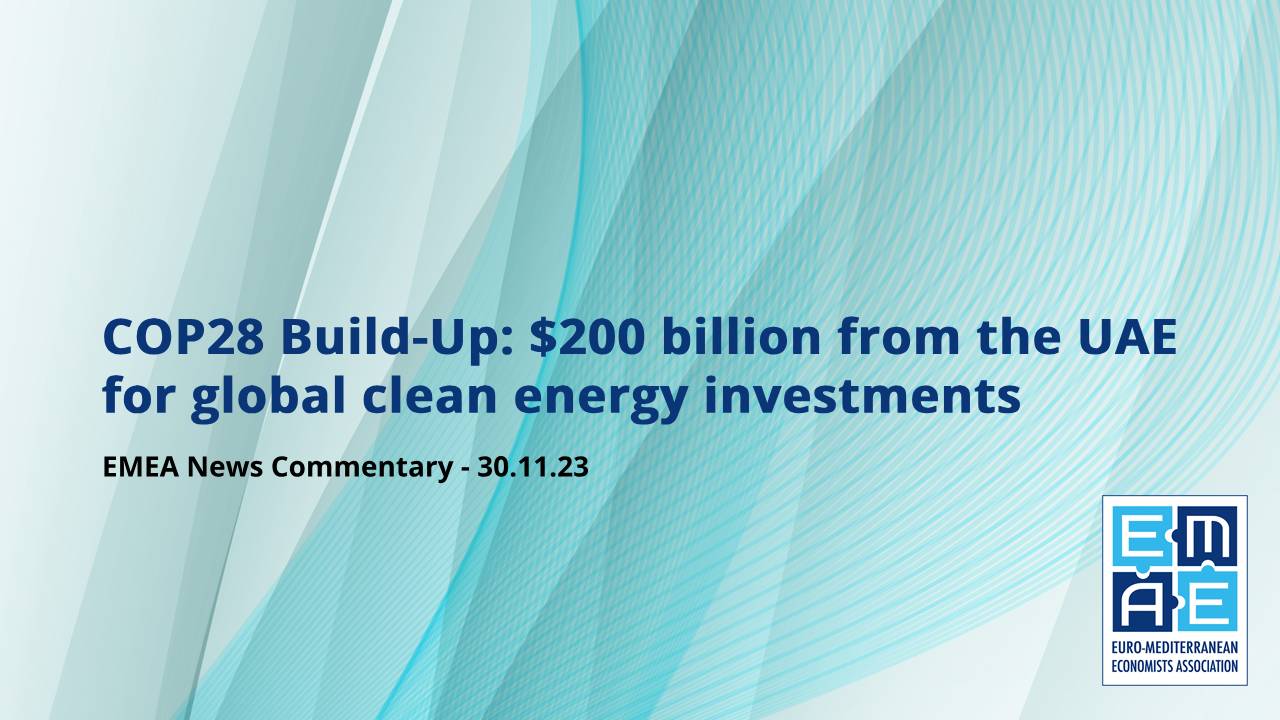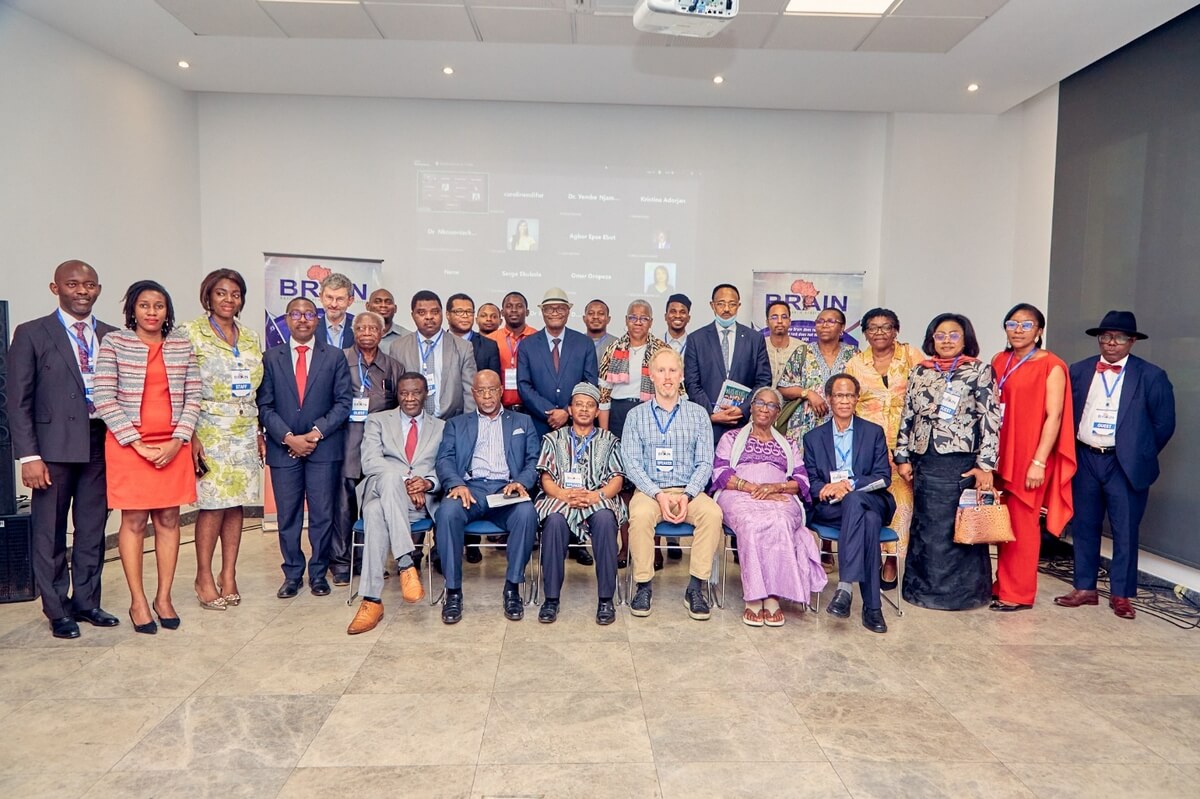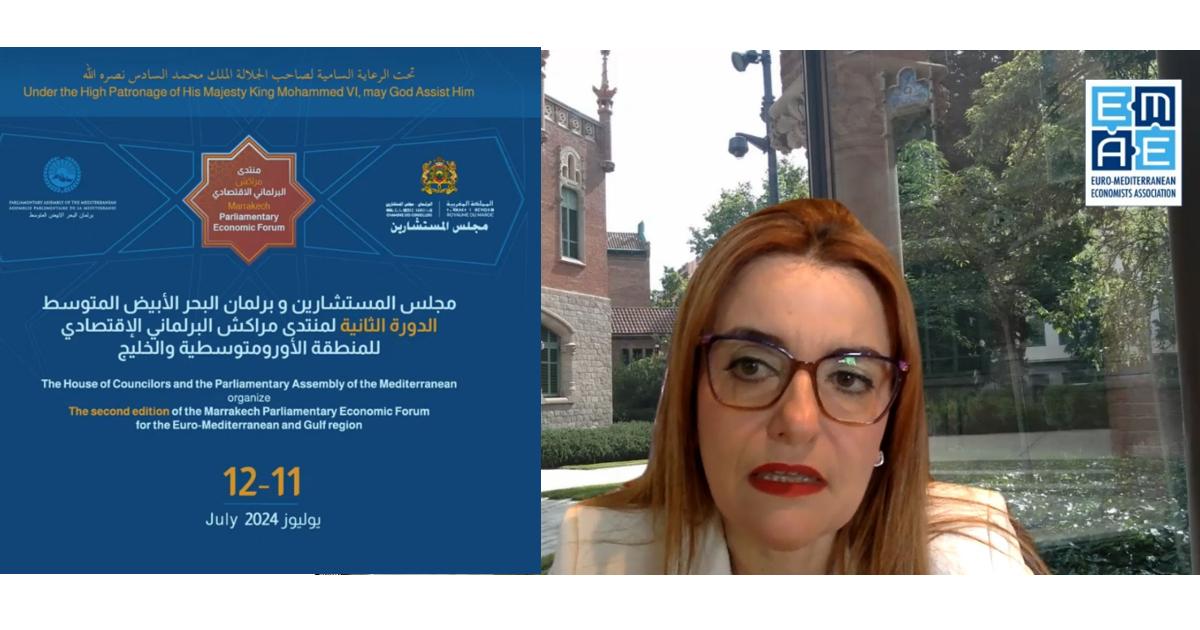The Financial Times has reported that the United Arab Emirates (UAE) hosts of COP28 are going all-out to make big investments in clean energy, in a bid to ensure the Summit is a resounding success.
A number of these initiatives have been driven by the Summit’s President-designate, Sultan al-Jaber, who is also chief executive of the United Arab Emirates’ Abu Dhabi National Oil Company and chair of the state-owned renewable energy company Masdar. Many believe this creates a conflict of interest.
As examples, the Sultan recently made a one thousand mile trip to Azerbaijan, meeting the country’s President to mark the inauguration of a 230MW solar farm – large enough to power 110,000 houses.
This coincided with Masdar signing agreements with three more renewable energy projects in Azerbaijan, with a combined capacity of 1GW.
Industry figures have estimated the value of these schemes to be in the region of $1bn. The FT reported that “the UAE positions the investment as evidence of its commitment to use some of its vast oil wealth to underwrite the transition to clean energy.”
The publication mentioned the leaking of documents regarding the UAE’s potential development of oil and gas projects with more than a dozen countries (as covered elsewhere in EMEA News Commentary).
Green energy becoming increasingly influential
The FT reported that although oil still accounted for the overwhelming majority of capex in the UAE, renewable energy was becoming more prominent. In the year leading up to COP28, the FT’s analysis showed that, worldwide, UAE state companies and funds have been linked to almost $200bn predominantly green energy investments.
Significantly, about one third of this investment was directed specifically to developing economies, including:
- $4.5bn to help African countries finance clean energy projects.
- Masdar said it would scale up renewable energy across the continent through the Africa50 initiative, using $2bn in equity to help finance the $10bn delivery of an additional 10GW in clean energy capacity in Africa by 2030.
- joint ventures for clean energy in Egypt, Zambia and Indonesia, where there are plans to triple investment in south-east Asia’s largest floating solar plant.
- a memorandum of understanding for wind, solar and battery projects in Malaysia, worth $8bn.
- agreements with Turkey for an estimated $30bn of energy deals.
- a $100bn agreement with the US to develop 100GW of clean energy by 2035.
- Masdar has invested in renewable energy in about 40 countries, valued at more than $30bn.
- Deals worth $50bn are planned with India.
- UAE ministers and trade groups are also said to have toured countries from Rwanda to Kosovo, Kenya to Colombia, with clean energy frequently discussed.
Several people familiar with discussions say the UAE is expected to announce more deals at COP28.
Accusations of greenwashing
According to Ben Cahill, a fellow at the Centre for Strategic and International Studies, this has reflected the country’s keenness to exert new influence. “[The UAE] wants to move beyond just being an oil and gas producer towards being a global country with partners all around the world. Climate is a big part of that,” he said.
Nevertheless, critics have argued that the UAE’s generosity “also serves to greenwash its role as one of the world’s largest producers of hydrocarbons.” The article said that the scale of its investments could be regarded “as an attempt to curry favour ahead of crucial negotiations at the UN’s leading forum for climate action.” This would enable them to “secure agreements that will allow it to continue pumping oil and gas, in spite of the long-term effects on the planet.”
Harjeet Singh, head of global political strategy at Climate Action Network International believed that the UAE was attempting to win over the trust of developing nations that were still reliant on fossil fuels whilst, at the same time, bringing fossil fuel producers into the heart of the COP28 discussions.
“This strategy might pave the way for an agreement that, paradoxically, keeps the fossil fuel industry afloat, whilst simultaneously positioning the UAE as a climate leader through support for renewable energy projects,” he said.
A spokesman for COP28 railed against the idea that the UAE was trying to win over countries through its investments. To imply that the UAE’s economic development and interests were directly related to COP, was misleading.
The spokesman added that the UAE had a longstanding history of uniting the global north and global south and had demonstrated a clear track record of positive economic relationships with countries around the world. “These partnerships have a critical role to play in inspiring positive climate action around the world, and uniquely positions the UAE to host a transformative COP,” he asserted.
Multi-billion dollar climate finance focussed fund
The FT reported that there are also plans for a multibillion-dollar “pot” or fund focused on climate finance, initially backed by the UAE, but with others also encouraged to contribute.
The expectation was that the fund would “provide equity finance and play a big role in helping poorer countries gain access to the cash needed to green economies.”
The UAE told the Financial Times it would announce a “robust set of climate finance initiatives at COP28 that exemplify the presidency’s call to bring forth available, affordable and accessible climate finance”.
News that the UAE appears willing to release cash to speed up the energy transition process and push for wider private investment has emboldened investors. “I would welcome anyone who is bringing more money into the system,” says Curtis Ravenel, the vice-chair of the Glasgow Financial Alliance for Net Zero, a coalition of financial institutions. “Will it be effectively deployed? . . . I think it’s hard to say because we don’t know the details.”
Meanwhile, Harjeet Singh said the UAE’s readiness to invest in climate finance for the developing world was in stark contrast to the “unfulfilled promises of many wealthier nations.” Western nations had repeatedly failed to deliver on money promised to help poorer countries deal with climate change.
But the paper pointed out that although climate financing would be a hot topic at COP28, the future of fossil fuel production – and discussions around its phasing out – was an equally pressing issue.
“The discussion of the future of fossil fuels at the Ssummit will be shaped by the holder of the presidency, which has a massive, vested interest in the continued production of hydrocarbons,” the FT commented.
James Lynch, a former UK diplomat and now co-director at FairSquare, a research and advocacy group with a focus on the Gulf region, said the UAE’s financial firepower would be extremely influential during the COP28 talks. “Many developed countries will be very keen to have strong positive relations with the UAE, given its financial clout and the potential for investment,” he said.
The COP28 presidency, he continued, was “extremely conscious” of being seen to have conflicting interests, on one hand as major oil producer and, on the other, overseeing climate negotiations. “There is a sophisticated plan to manage these conflicts and the investment strategy forms part of that,” added Lynch.
Deal-making a shield against consequences of failure
Nigel Purvis, chief executive of the climate consultancy Climate Advisers and a former US State Department official, said “the flurry of dealmaking” would also ostensibly shield the UAE from the consequences of failure. “Those issues are difficult and there’s a chance of a blow up, with nations not reaching agreement. The UAE seems likely to hedge that risk by making big financial commitments to invest its sovereign wealth in climate technologies and innovation,” he predicted.
Despite this, one developing country negotiator was reported as saying that he didn’t believe the spate of UAE clean energy investments was an attempt to influence negotiations at COP28. Whilst multi-country alliances had successfully pushed towards certain outcomes, no single country, however large or small, could veto a COP agreement.
An alternative view, however, was that the UAE’s “preference for deals over climate diplomacy” would not augur well for a successful COP.
Commenting on the UAE’s stance during the build-up to the Summit, one developing country official said their representatives “would rather talk” to the head of the IMF, the former Bank of England governor or BlackRock’s CEO, than wrangle over “messy” climate talks.
The cheque book COP: UAE’s $200bn bid for climate influence (ft.com)





